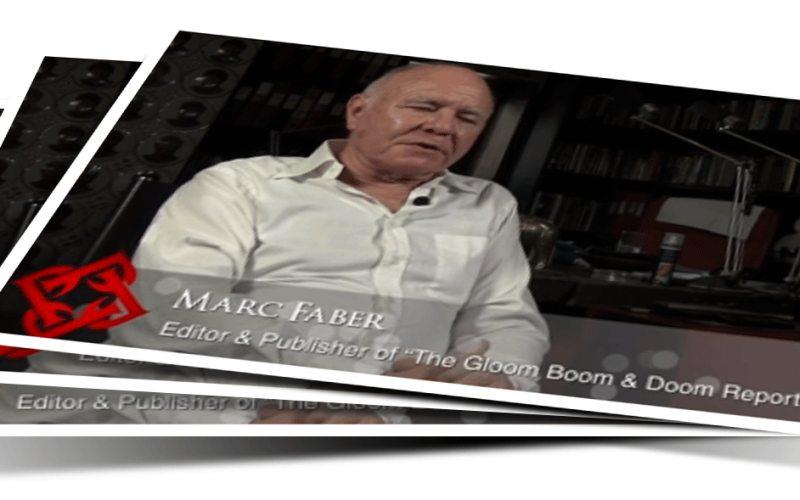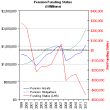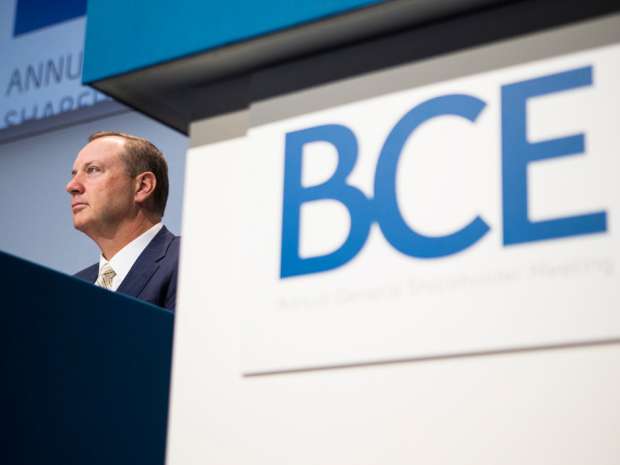In an important diversion from a pure markets focus, Marc Faber outlines his concerns and hopes for the "economic battle between the US and China," noting that as the gap between the Western world and the US narrows so "through trading links, [China] has more and more influence," especially (he adds) in Africa. His biggest fear, and one stoked every day, is that if the Chinese economy slows down meaningfully, they will depreciate their currency, leaving the world's largest economies "in a mode of protectionism - not just through import quotas - but through currency manipulation." And for now Russia is happy just tp upset the US via diplomatic means, but, Faber warns, should we see commodity prices slide further, low growth in Russia may prompt further actions - especially given US interference in markets and politics.
Full Transcript below:
To what extent are Asian Central banks incurring large losses on their balance sheets due to local currency appreciation against foreign exchange reserves? How can these losses be mitigated?
FABER: Let’s specifically take the case of China. They obviously have had a huge increase of foreign exchange reserves over the last 12 years and they now have over $3tr and most of that is invested in dollars and their currency did appreciate. So in theory, they have a loss. On the other hand, because of their trade surplus with the rest of the world and particularly with the US, there was a huge transfer of technology to China as China produced for the United Sates and other countries. So as a result of this production, there was an increase in employment in China, an increase in real wages, an increase in capital spending, in foreign direct investment, and so forth and so on. So the loss on the foreign exchange is a very small price to pay for the benefits that China received over the last 12 years.
Now in some other cases, yes the Asians had some appreciating currencies until recently. But more recently, they have not. So maybe they will eventually have a gain on their foreign exchange reserves because they are mostly in US dollars and the local currencies have had a tendency to weaken. If my view about the slowdown in China is correct, they could weaken much more.
If you look at Japan, they entered a money printing exercise a couple of months ago at the end of last year and they weakened the yen. So the Koreans scratched their heads and said if the Japanese do it we should also do it. If the Chinese economy slows down meaningfully, the Chinese will say ok let’s depreciate our currency also. So everybody is in a mode of protectionism, not necessarily through import quotas and import duties, but through currency manipulation.
How do you see the economic battle between the United States and China playing out?
FABER: Look at China and US over the last 50-60 years. In the 1950s, the US was way ahead of China and the whole rest of the world in terms of economy, in terms of technology, in terms of innovation, and in terms of GDP per capita. That narrowed, particularly against Japan in the 60s and 70s because the Japanese economy was growing very rapidly. Do not forget that by 1989, the Japanese stock market had a larger market value than the US and so that gap has narrowed a lot.
Then, after the breakdown of the socialist communist ideology in countries like China, the socialism in India, and in the former Soviet Union, 3bn people joined the global economy and their GDP per capita increased a lot, albeit from a very low level. So the gap between the Western world and the US, and the emerging world has been narrowing. The US is basically still the military superpower and the largest economy, although not in all markets, and now you have China emerging over the last 20 years or so and growing very rapidly.
Now we have, in many sectors of the economy, China being larger than the USA. It should be clear that there are more mobile phones in China, with 1.3bn people than in the US. There are more TVs in China, more refrigerators in China, and so on. So the market has exploded and China has an increasingly important geopolitical role.
Mr. Obama just went to Africa. Well, Chinese trade is twice the size of US trade with Africa. So through trading links you have more and more influence.
Usually, historically, if you had a superpower up here as the dominant economic and military power and then you have a rising power, this then threatens the hegemony and it inevitably leads to tensions.
If you read political papers in the US, the recurring question is, how do we contain China? They do not necessarily want to fight China, but they would like to have a China with less influence. On the other hand, you have China with 1.3bn people and they have obtained most of their oil from the Middle East and they are surrounded here in Asia by American naval military bases.
A year ago, Hillary Clinton announced a pivot towards an emphasis on Asia. So how do you feel as China? How would the US like to have Chinese military bases in the Caribbean? They would feel threatened. So I understand the Chinese. From their perspective, they do not like the developments here in Asia and particularly not because the US has started to meddle into the affairs and territorial disputes between Japan and China, the Philippines and China, and Vietnam and China. I think it would be better if the US stayed out because in my view the Chinese businessmen control Asia anyway. Outside the government, who are the large businessmen in Asia? It is the Chinese in Indonesia, the Chinese in Malaysia, the Chinese in Thailand, the Chinese in the Philippines, etc. So they have no territorial ambitions per say, but because of the strategic importance of the sea lanes to China to carry resources to China, they obviously do not want to have an increase of the American presence in Asia.
In my view if Japan, Taiwan, the Philippines, Vietnam, and China were left alone, they could settle the territorial issue because it is partly over the water rights, partly over the sea lanes, and partly over the oil and gas reserves. One could come to an agreement about production sharing.
But each time the US comes and becomes very good friends with India and so forth, the Chinese experience a setback in their relationships and I think that could disturb economic growth here in Asia.
What are your projections for Russia?
FABER: Well basically, my partner and I had one of the first Russian funds, Firebird, which we started in 1993. Firebird still exists although I am no longer a partner, but it was a very successful hedge fund that invested not only in Russia, but also former Soviet Union countries and has investments in countries like Mongolia and so forth. I think it is difficult to say I am bullish about this country or bearish about that country. I think it depends very much on what kinds of sectors of the economy you invest in, what kinds of companies, and what kind of partners you have and if they are reliable or not.
In general, the valuation of Russia is very low compared to other emerging economies.
However, should commodity prices come down, I do not think there would be much growth in the Russian economy. We have a lot of issues as well about corporate governance and so forth. I have played Russia more in recent years through the debt market. In other words, I hold bonds of Russian issuers.















